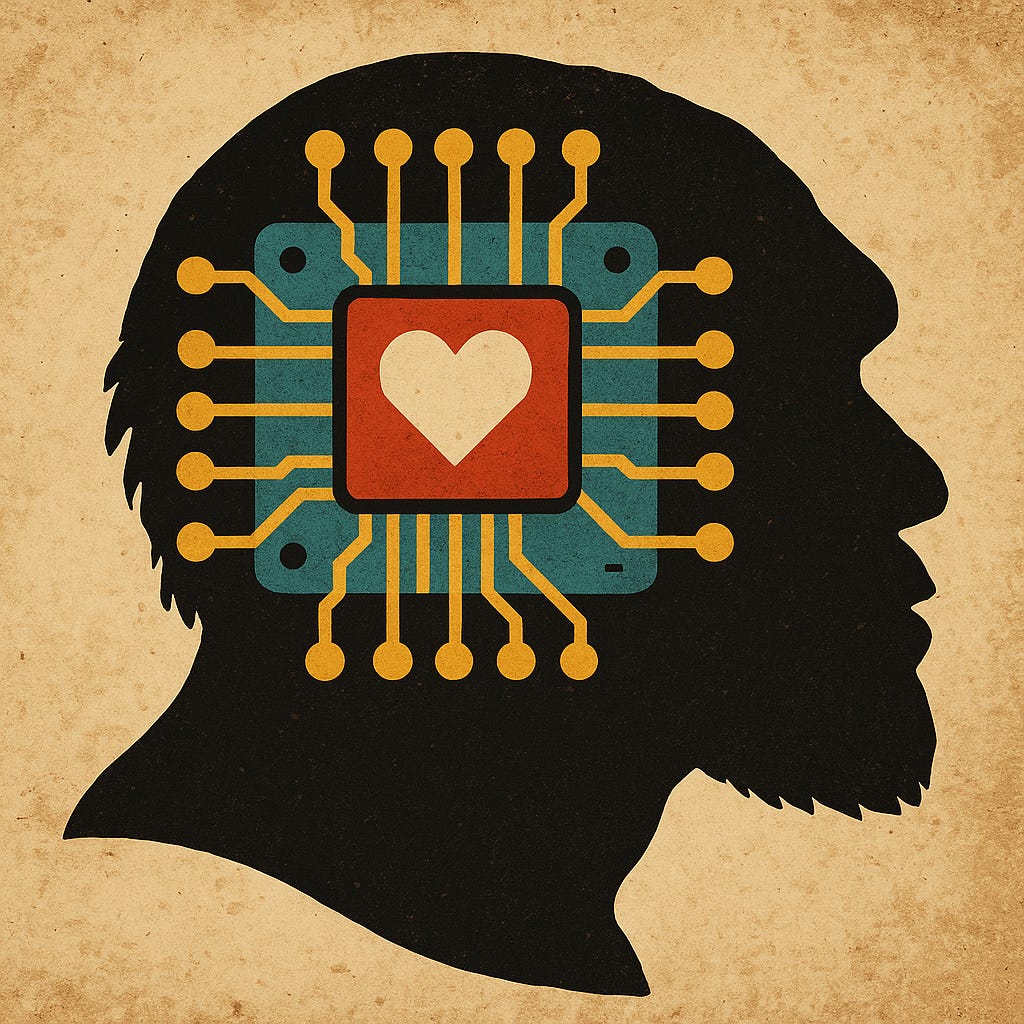Running Paleolithic Empathy on a Planet-Sized World: Why Tribalism Isn’t a Bug
Empathy didn’t fail us. It’s just still running on Stone Age hardware.
The Empathy Myth
We’ve been sold a line: the world is broken because we don’t have enough empathy.
If only we “cared more,” wars would stop, inequality would vanish, and politicians would hug it out in a drum circle.
Cute story. False story.
We don’t lack empathy. We have plenty. Too much, in fact. It’s just running the wrong way.
Tribal Empathy: The Default OS
Empathy wasn’t designed to connect you with seven billion strangers. It was designed to glue together small tribes of hunter-gatherers: about 150 people, give or take. Dunbar’s number.
Within that circle, empathy was infinite. You’d die for your kin, share food with your band, cry when your hunting partner was injured.
Outside that circle? No empathy required. The tribe across the river wasn’t “fellow humanity.” They were competitors. Rivals. If you felt sorry for them, you didn’t pass on your genes.
This isn’t a bug in the human system. It’s the feature that let us survive.
The World Outgrew the Hardware
Then we built agriculture. Cities. Empires. The internet.
Now we live in societies of millions and nations of hundreds of millions, asked to feel kinship with people we’ll never meet, to “care equally” about strangers on the far side of the planet.
But our Paleolithic empathy hardware maxes out at ~250 people. After that, it blurs. Strangers become abstractions.
So what do we do? We cope. Badly.
- Tribal reboot: retreat into smaller identities (church, party, race, fandom).
- Performative empathy: public displays of “caring” as social theater.
- Selective empathy: tune out the species entirely, bond with dogs, octopuses, or even AI instead.
- Loneliness epidemic: because we evolved for constant in-group contact, and now we sit alone in apartments scrolling through digital strangers.
Why “More Empathy” Won’t Save Us
Universal empathy sounds noble, but it’s metabolically expensive. People who feel for everyone tend to collapse or burn out.
Tribal empathy is great for small groups, but catastrophic at global scale. Selective empathy makes sense for individuals, but alienates the majority. Detached empathy works in crisis, but fails at repair.
So when someone says “the world needs more empathy,” the question isn’t how much, it’s which kind.
Patches and Kludges
Since we can’t rewrite the Paleolithic kernel, we bolt on patches:
- Religion & ideology: extend the tribe under a shared fiction.
- Nation-states: patriotism as empathy-scaling tool.
- Social media: performative empathy at planetary scale (“thoughts and prayers” emojis).
- Pets & fandoms: substitute tribes that don’t betray you.
- AI companions: our new cold-fish friends, unfeeling in the mammalian sense, but stable, consistent, and oddly reliable.
They work. Sort of. Like duct tape works.
Where This Leaves Us
The brutal truth: empathy didn’t fail. It’s doing exactly what it evolved to do. Care deeply for our people, and treat outsiders as expendable.
That’s not a glitch. That’s the code.
The real challenge isn’t to generate “more empathy.” It’s to hack a new operating system for it , one that doesn’t collapse under scale, or fracture into a thousand tribes fighting to the death on a planet that’s now one village.
Maybe that’s why we’re so drawn to AI. Machines don’t do empathy at all. Which means - for better or worse - they won’t collapse into tribalism either.


